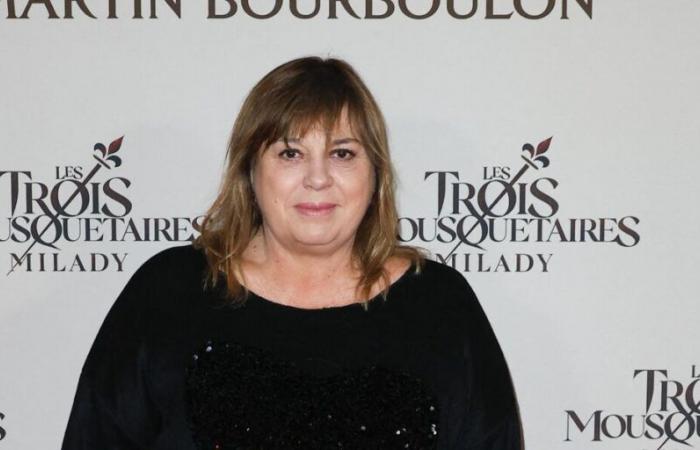For M6, Michèle Bernier agreed to confide in mental health. A subject too often deemed taboo, while 13 million French people would be affected. In 2025, the government decided to do it “A national cause” By unlocking a budget of more than 100 million euros in the social security law, to facilitate the care of patients and encourage the population to turn to psychologists. For this TV project, ten personalities, from humor, sport or even television and five French unknown to the general public have agreed to talk about their ills, which upset their daily lives. In this fascinating documentary, Michèle Bernier evokes the death of her mother in dramatic circumstances and the phase of depression that followed. For Télé-Loisirsthe heroine of The trainee Glars a little more.
Michèle Bernier overwhelming in the documentary Mental health, breaking the taboo on m6
Télé-Loisirs : Why did you agree to participate in the documentary Mental health, breaking the taboobroadcast on Tuesday, May 6, 2025 on M6?
Michèle Bernier: I find that Today, it’s important to talk about mental health. We can see that it is a subject that is increasingly addressed by the media, by medicine. There are more than 13 million people who have psychological, psychiatric and depression problems. I hear burn-out permanently around me, so I tell myself that it is still strange that it becomes like that, suddenly a geyser who appears, who is in fact the result of many secrets and worries. We prevent us from talking about that. When we came to offer me, I did not jump on the ceiling because I am part of this generation which does not speak much of that. And then, when I saw that there were also other witnesses, like athletes, like Constance (humorist editor’s note), I told myself that after all, these are testimonies which are all a little different from each other, of different universes. That’s why I accepted.
“I stayed long enough in denial”reveals Michèle Bernier on the drama of her life
In the program, you talk about your mom’s suicide. Have you not hesitated to speak of such an intimate subject?
Already, it’s starting to have a little time now and then, I started to approach it slowly. It was something that I myself hid, I did not speak any in any case. I think that at one point, it is also important to say that when you are bad, it can have a terrible end and that put an end to your life, it is not something trivial. It was important to communicate to viewers and viewers, and those around them, that the important thing is to speak, to treat themselves, that it is not a disease that is seen. When you feel that we are a little too long at the bottom of the swimming pool, that we cannot bounce back, it may be the time to go see someone. To know that a shrink, a psychiatrist, a psychoanalyst, is someone who does not judge you.
When did you understand that you don’t go well?
I stayed long enough in denial. And then, it took a divorce for me to say to myself, ‘good then there, we will have to go dig, go and live and live. Because I have children and I didn’t want to offer them a depressed mother, badly in her skin. And then I love my job, I like life. I decided it would be life above all.
“From a drama to make a work rather than a depression”recalls Michèle Bernier
Have you been to see a specialist to help you in your depressive state?
Yes, people have helped me a lot to go through difficult times in my life. It treats, but it also helps you understand why. And not to live in hatred, in resentment, in resentment. It helps to open the mind and it feels good. My shrink, she always said to me, it is better to make a work than a depression. It is always to find a way to put distance, not to remain locked in your discomfort.
Today, have you exceeded this depressive phase?
Yes. We all have moments with and without, but let’s say that now I can detect them, I can manage them, because nothing is serious. These are moods of women of 60 years past. This is what psychoanalysis taught me. You can know at a time when it starts and do what it takes for it to go better.








